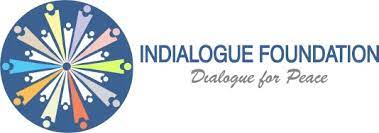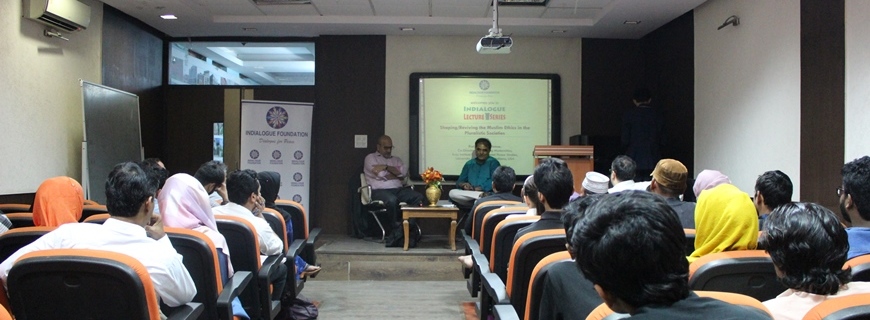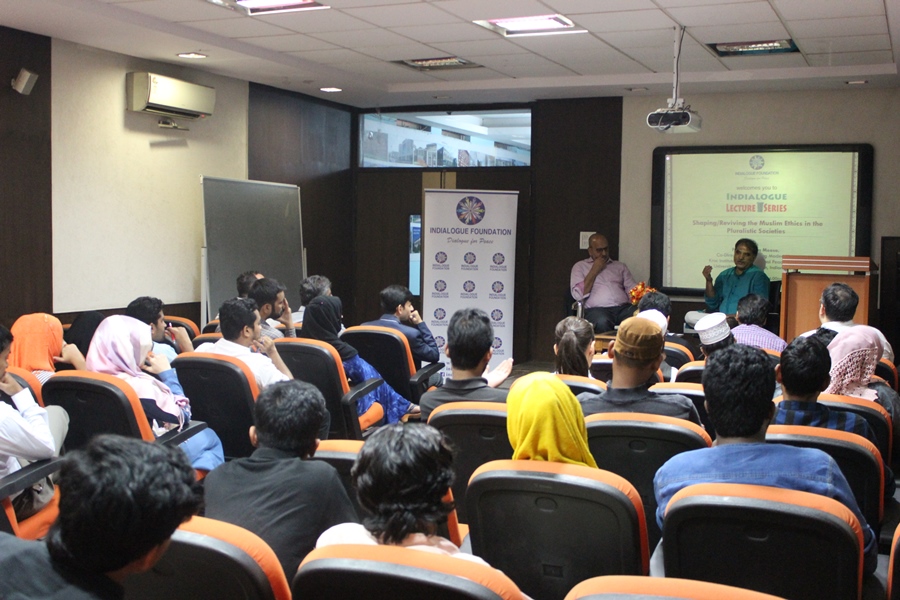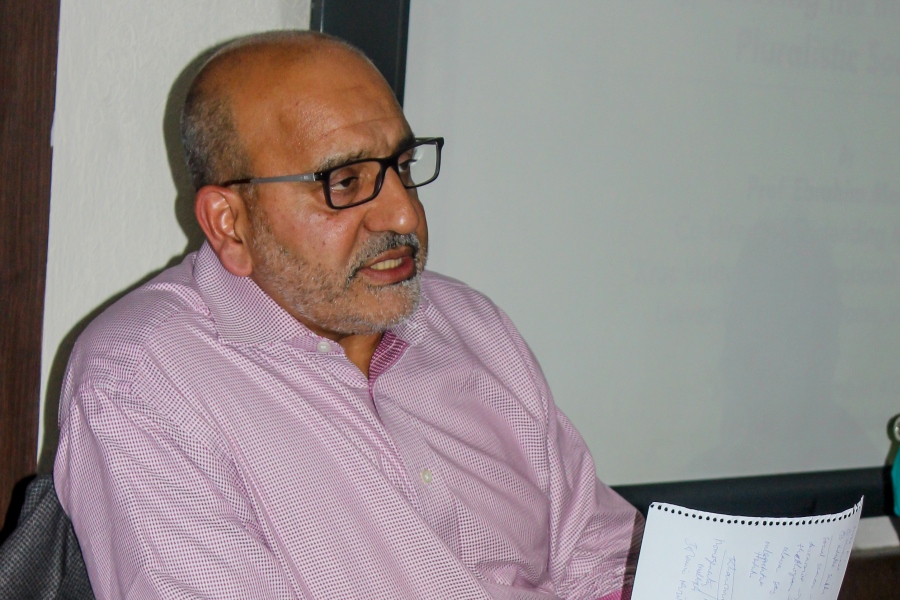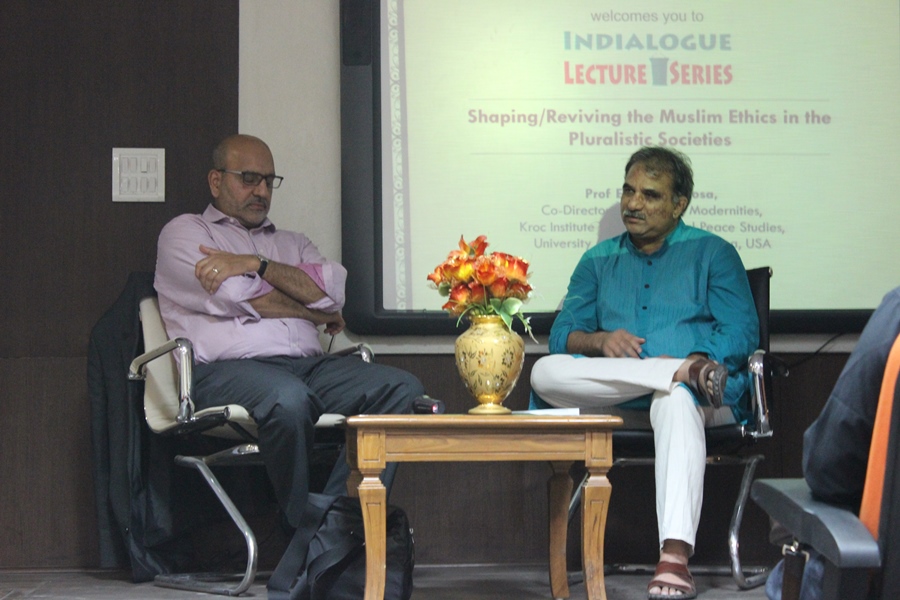On October 30th, 2017 under Indialogue Lecture Series (ILS), Prof Ebrahim Moosa, a prominent academician and a journalist-turned-scholar, delivered a lecture on the topic “Shaping/Reviving Muslim Ethics in the Pluralistic Societies”.
ILS is one of Indialogue Foundation’s initiatives to engage academically with research scholars studying in different universities in Delhi. Under ILS, one lecture is organised every month by eminent intellectuals and academicians.
Ebrahim Moosa, who is currently Professor of Islamic Studies at University of Notre Dame, Indiana, USA, was previously Professor of Religion and Islamic Studies at Duke University. Named as one of the top 500 Influential Muslims in the world, Prof Moosa is considered a leading scholar of contemporary Muslim thought.
In his interaction with the diverse audience at the Indialogue Foundation, Prof Moosa provided an engaging portrayal of contemporary Muslim thought in the context of peace, dialogue, pluralism and multiculturalism. He explained how political narratives of dialogue, pluralism and ethics around Islam and the Muslim community have been changing in the historical contexts.
He suggested: “When we talk about the Muslim ethics, we must see what the historical issues Muslims are held hostage to”. He elucidated that while ideas, values and principles might tend to be universal and appeal to reason, they are also the products of their times and their historical locations. He added, “To ignore historical realities is to fall into a trap. Such ignorance misleadingly presents a view that people are without a history”.
Prof Moosa averred that if you don’t question your tradition, your tradition will die and you will die with it. He buttressed this point with his explanation that tradition might give us the sense that things have been the same over time in changeless universe. But the closer scrutiny shows that traditions adapt, words earn new glosses and meanings. Thus, he expressed great concern and interest in revisiting some of the rules that are increasingly being challenged within the intellectual circles around the Muslim world.
For instance, Moosa contested the widespread image of the Qur’an as a ‘constitution’ and stated that the holy Qur’an is book of ‘guidance’, not of the ‘constitution’. “Calling the Qur’an a book of constitution is laziness. You have to do your work. We must study our sources and must not stop there. Rather, we should add to that”, he said.
In his erudite address, Prof Moosa also touched upon his in-depth analysis of the Muslim political theology and its impact on the peace policies in Muslim societies. He concluded that most political theologians today are clinging to the medieval Muslim practices instead of engaging with the new knowledge and the constitutional order.
Notably, Ebrahim Moosa has authored several seminal works. Among his latest works is his book What is a Madrasa? which has been published by the University of North Carolina Press.
Page Hits–2066
